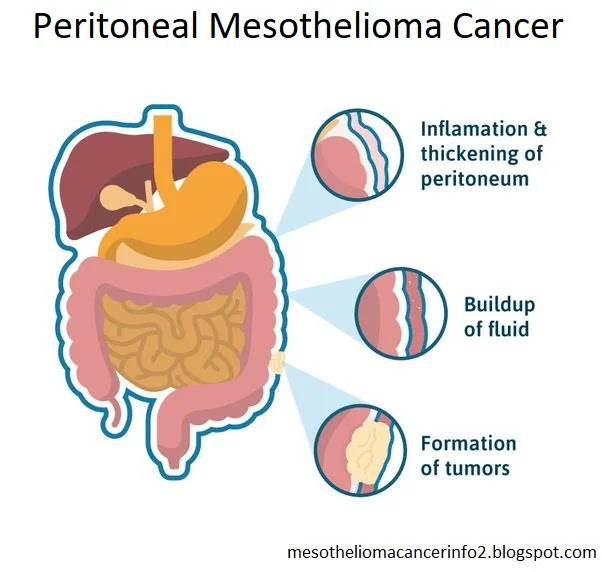Get the Facts on Peritoneal Mesothelioma Cancer
Why You Shouldn't Ignore Peritoneal Mesothelioma Cancer
What’s the difference between mesothelioma cancer and peritoneal mesothelioma cancer? One involves the lungs, while the other involves the abdominal cavity, but do they share any similarities? How can you tell if you or someone you love is suffering from peritoneal mesothelioma cancer? The following guide will help you understand this disease and how to spot the early warning signs of peritoneal mesothelioma cancer.
1) Mild shortness of breath
One of the early warning signs of peritoneal mesothelioma cancer is mild shortness of breath. Cystic peritoneal mesothelioma is a rare form that usually progresses much more quickly than malignant peritoneal mesothelioma and causes patients to struggle with breathing earlier on in the course. Primary peritoneal mesothelioma has a higher survival rate than malignant peritoneal mesothelioma, but this isn't always because it is less aggressive.
2) Easy Fatigue
One early warning sign is easy fatigue. Cystic peritoneal mesothelioma cancer and primary peritoneal mesothelioma tumors often produce scar tissue, which has a significant effect on one's lung capacity. In turn, this leads to general tiredness that isn't alleviated by sleeping or taking time off. Fatigue can also come with nausea, vomiting, breathlessness, indigestion and diarrhoea.
3) Weight Loss Without Trying
Did you know that peritoneal mesothelioma cancer can present as weight loss? Sometimes it's because the cancer has compromised digestive abilities, but there are other symptoms too. Learn how to spot these early warning signs before it's too late. It's important to be aware of your body and any changes, especially if you've been exposed to asbestos or have a family history of this rare cancer.
4) Swelling in the Abdomen and Upper Thighs
Some peritoneal mesothelioma symptoms can include chronic fatigue, a sore chest, stomach pain and swelling in the abdomen and upper thighs. The abdomen and thighs may swell as a result of fluid accumulation around your organs caused by a build-up of lymphatic fluid that your body cannot drain because mesothelioma is blocking drainage pathways.
5) Chest Discomfort and/or Pain
There are a few signs that can help point out an early diagnosis. The first one is chest discomfort and/or pain. Some other indications may be shortness of breath, coughing, hoarseness, difficulty swallowing, chest or back pains, and heart palpitations. These symptoms are considered among the most common warning signs for peritoneal mesothelioma cancer.
6) Hoarseness, Cough, Wheezing, and/or Shortness of Breath
Peritoneal mesothelioma symptoms are similar to some other types of lung cancer, which can make it difficult for a doctor to diagnose. These symptoms are not specific and may include: hoarseness, cough, wheezing, or shortness of breath. Treatment options for this cancer include radiation therapy and chemotherapy. Unfortunately, peritoneal mesothelioma is often diagnosed in advanced stages and patients have an average survival time from diagnosis that ranges from 12-18 months.
7) Persistent Belly Pain or Feeling Bloated All The Time
It is important to be aware of peritoneal mesothelioma as a possible cancerous issue if you are experiencing abdominal pain or pressure. Persistent belly pain or feeling bloated all the time can be signs of peritoneal mesothelioma and should not be ignored. This type of cancer is often symptomless for an extensive period and so it is vital that if you notice these symptoms, it's essential to get checked out as soon as possible by your doctor.
8) Chest Pain When Taking a Deep Breath in or When Laughing
Mesothelioma abdominal symptoms include chest pain when taking a deep breath in or when laughing. This symptom is common in peritoneal mesothelioma, but it can also be caused by other things, like a heart attack or acid reflux. However, it's important not to dismiss these symptoms as nothing too serious if you have them on a regular basis or if they persist for longer than 6 weeks.


